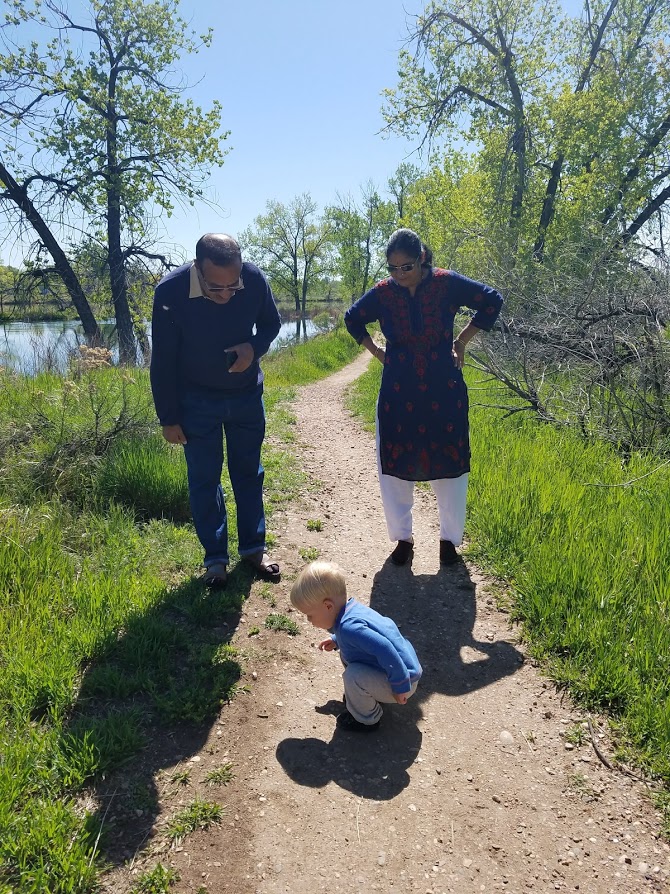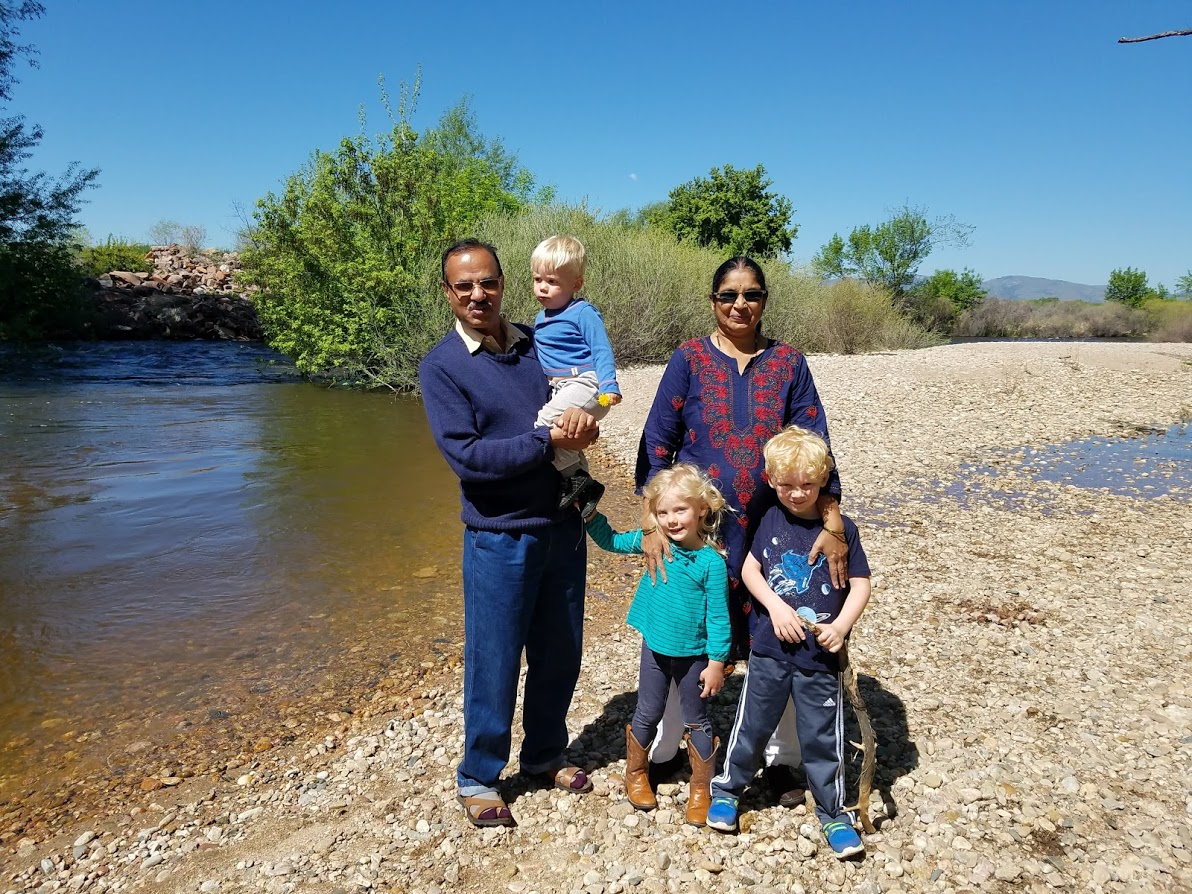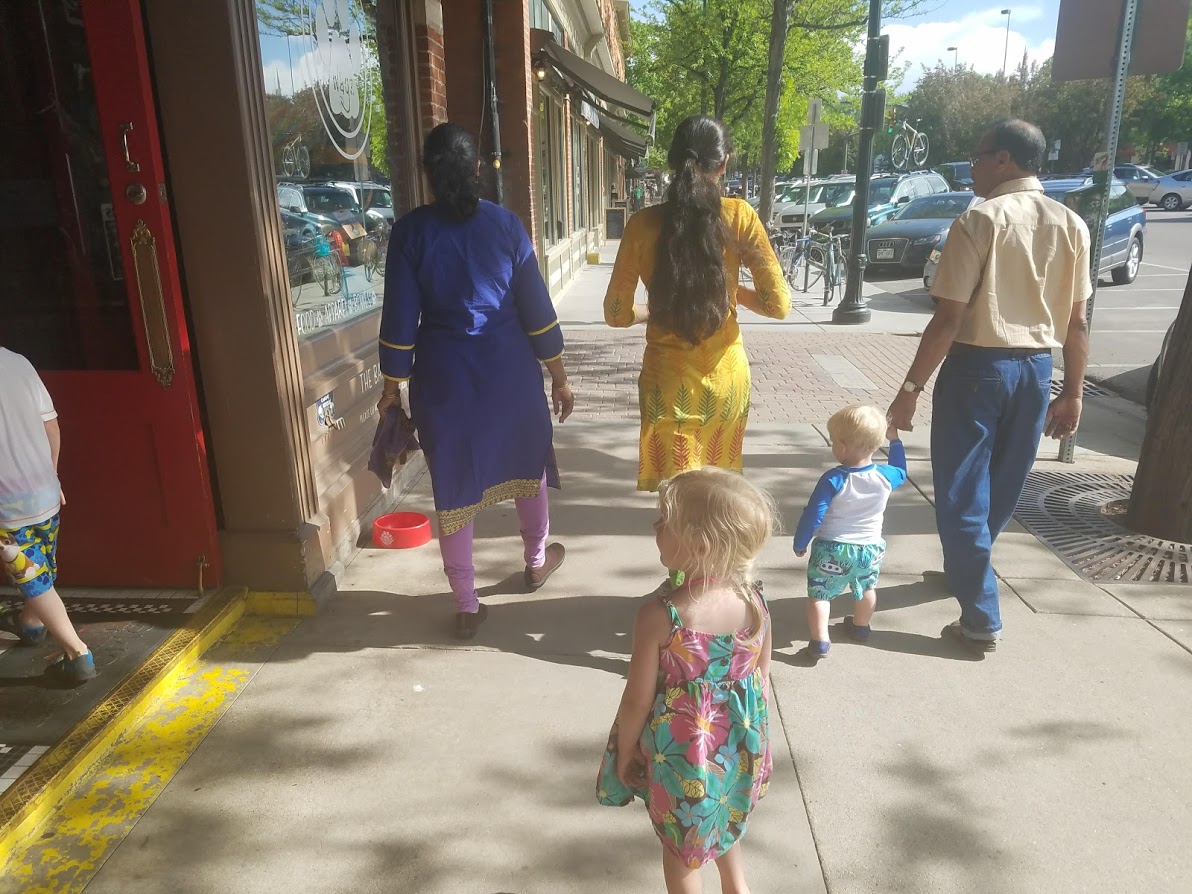
By Kimberly Baldwin
While in grad school I spent some time in India with fellow students. After dinner one night, our host led us through some of the city’s streets until we ended up in Dharavi, which I would later learn was one of the largest slums in Asia, covering more than five acres in the heart of the city and home to as many as100,000 people. Dharavi was like nothing I had ever seen or experienced. We walked single file down the narrow alleys, the streets of Dharavi, following our guide closely, minding his instruction to keep close.
It was getting dark and it was a busy time of night. There were people everywhere. It felt as though I was pushing my way through a crowded train car. Our guide told us to avoid stepping in the water. With no proper waste system, the water running down the walkways was sewage. There were slabs of meat hanging from open windows. There were tiny shops. There was corrugated metal, cardboard and wood, all pieced together to build homes and businesses, a community. I was overwhelmed in every sense of the word. How do they all fit? How do they not get sick? How do children not get lost? When we finally emerged from the narrow alleys of Dharavi we were led up five flights of stairs to the roof of a neighboring building and told to look down.
Below was Dharavi, the community we had just walked through. All I could see were rooftops pieced together, the alleyways not visible from the view above. Then looked up and out. The rooftops kept going. Dharavi kept going. It was bigger than I could have ever imagined. We had only covered a block. There was so much more. Stretching out before me were the lives of thousands of people … women, men and children living and breathing, working and cleaning, preparing food for their families, bathing their babies, caring for those who were sick. Suffering and celebrating. Laughing and crying. Dying and being born.
In Ignatian Spirituality, St. Ignatius of Loyola invites us to contemplate the incarnation in two parts. In the first part we are asked to imagine what the Trinity sees when looking out upon the earth before making the decision to enter into it in human form.
For me, when I pray this first part of the contemplation I always see Dharavi.
I see the expanse of metal rooftops going on for miles, seemingly without end, and it astounds me every time that somehow God sees all of this and is, at the same time, still acutely aware of the individual moaning and exultation of each person. We don’t just get lost in the mix and that to me is astonishing. God can both see the broad view of the whole world (the rooftops of Dharavi view) and at the same time can see, feel, and hear the inner workings of each and every single person … all 7.5 billion of us. God sees all of this and then decides to enter into it, right into the middle of all our pain and all of our mess.
But first, Mary had to say yes.
For the second part of the contemplation on the incarnation, Ignatius invites us to imagine what that moment must have been like for Mary. However we might describe what Mary’s life was like in her time and day, it’s safe to assume it wasn’t easy. She most assuredly had dirt under her fingernails on the regular. But when presented with what must have seemed a crazy proposition, she said yes, and in doing so, made a very clear statement about her life’s orientation. Advent invites us to orient our lives just the same.
This is what Advent boils down to for me.
Advent … a time of hopeful anticipation, a time of inviting God in, a time of recognizing where we need God, and a time of re-orienting our lifetowards that which matters most.
My family and friends know that I love Christmas. I love all the cheesy romanticmovies. I love the lights and the photo cards that come in the mail. I treasure buying presents for the people I love. But I don’t think I could love Christmas the way I do without Advent.
Advent is when I am reminded that, just as Mary had to say yes, I too have to say yes. Not a one time yes but an ongoing, day-by-day and year-by-year yes. I have to make a decision about the direction I want my life to be heading. I have to open myself up to the God who wants to make a home in me. Advent gives us time to decide (maybe for the first time or maybe again), towards what or whom is our life oriented.
Then we might see more clearly the incarnation. We might more joyously participate in the lights, and music and gifts of Christmas because Advent will have prepared us well.
The seemingly secular Christmas hype won’t concern us because instead it will serve as a reminder that the Trinity looked at the world and upon seeing the destruction and the suffering, responded out of compassion and mercy, deciding to incarnate God’s very self into the world in order to heal it. But that’s not all (as if that wasn’t enough). Advent reminds us that God gazes at each one of us in the very same way, with compassion and mercy, wanting to heal us, wanting to re-orient our lives. We just have to make the space. We just have to say yes.
About Kim:
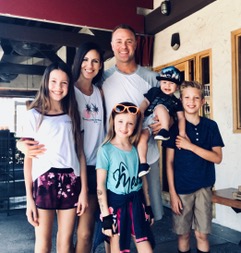
As a wife and mom to four young children, Kim Baldwin is happiest when spending time with family and friends, enjoying the gorgeous Arizona sunshine, watching a little HGTV and volunteering with organizations doing good in the world. Professionally, she spends her days working with awesome undergrads in the Next Generation Service Corps at Arizona State University who are committed to creating change. This is where her passions lie and where her heart is most drawn. Kim looks forward to connecting with you as you too discover and share how you have been called to love and to impact change as you carve out estuary moments in your everyday life. Read more from her at http://www.ignatianmama.com.
***

For December, the theme on the blog is “The Other Side of Advent.” Let me know if you’re still interested in guest posting (I’m usually willing to extend deadlines)! Check submission guidelines here.

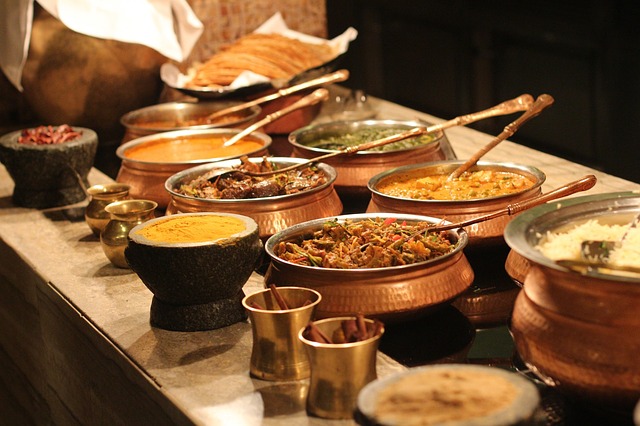
 Mary Grace Otis is a writer, editor, and podcaster who lives with her husband and three boys in northern Michigan. You can find her podcast and posts at
Mary Grace Otis is a writer, editor, and podcaster who lives with her husband and three boys in northern Michigan. You can find her podcast and posts at  We are giving away a copy of
We are giving away a copy of 

